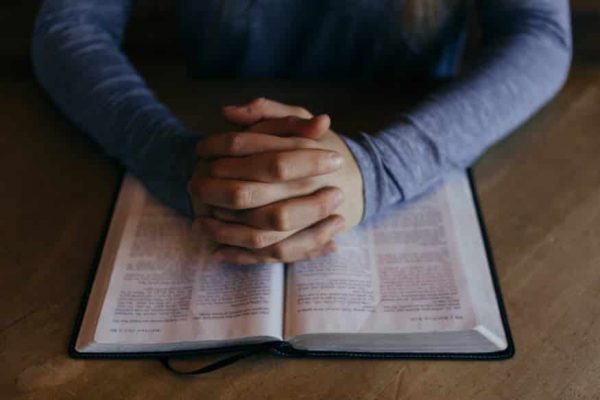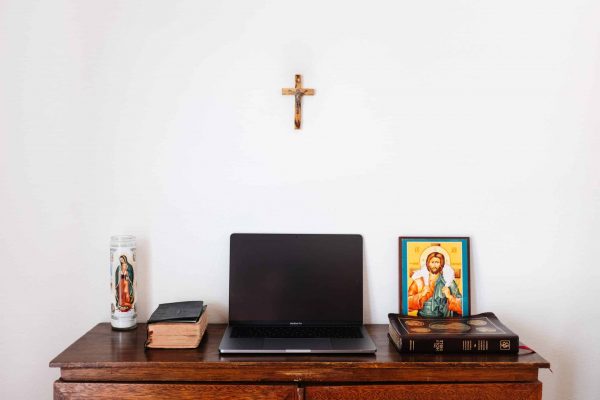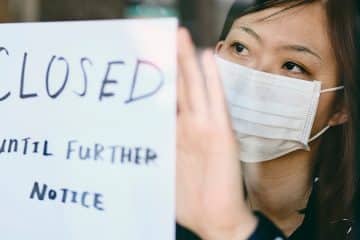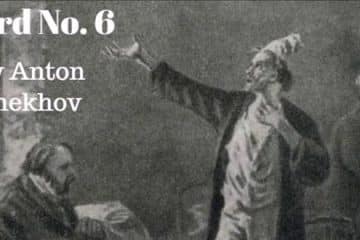The pandemic has forced most countries around the world to reconsider their usual view of social interaction and holding mass events. This situation has also affected the religious sphere. Therefore, it is important to consider the impact of coronavirus on religion and faith. This problem touches a number of social, philosophical, and theological issues.
Relations between the authorities and religious institutions
The state authorities, by imposing quarantine restrictions, came into conflict with religious institutions. Thus, the ban on mass gatherings and events implied the refusal of worship services. Meanwhile, religious institutions were divided based on their response to the quarantine measures: support was combined with neutrality and calls to ignore government orders. The realization of the spiritual and religious rights and freedoms guaranteed by the Constitution and the Declaration of Human Rights has been put into question.

In this regard, the researchers were puzzled by the definition of the impact of the coronavirus pandemic on the religious sphere as well as spiritual and religious life. Thus, the pandemic caused the need to solve the following tasks:
- Definition of the concept of religious security;
- Description of the problem of transformation of religious security in the pandemic situation;
- Analysis of the strategy for spiritual and religious security in the world during the COVID-19 pandemic;
- Identification of the peculiarities of interaction of religious institutions with each other and with the state authorities;
- Research of possible strategies for resolving conflicts that arose in the religious field during the pandemic;
- Study of possible transformation models of spiritual and religious life in the epoch of “new reality”.
“New reality” and religion
The COVID-19 pandemic has made society rethink its former socio-cultural and religious-spiritual adjustments. In the field of religion, the pandemic and the consequences of quarantine have affected in particular the functioning of religious institutions. The biological power, about which the French philosopher Michel Foucault wrote, contributed to the ban on holding mass events. Thus, the celebration of Easter, Palm Sunday, etc. fell under the restriction. Therefore, it is necessary to note that the coronavirus pandemic and the religious sphere have come into conflict.
First, the state leveled the significance of religious rituals by imposing restrictions on visiting religious institutions. The rite of religion and faith was replaced by an epidemic ritual. Second, the question has arisen in society as to whether religion can resist the infection. Thus, the authorities put into doubt the authority of religion and religious figures. Third, it is pertinent to note that not only religion and the pandemic have come into conflict. The process of confrontation involved religious activities, the constitutional human right to freedom of religion, movement, and quarantine. On the other hand, the religious sphere has found a point of intersection between the implementation of its activities and the situation of quarantine and pandemic restrictions. Foreign sources write extensively about this. This is a set of measures:
- Assistance in the distribution of medicines;
- The assistance of the state authorities in carrying out epidemic events;
- Promotion of epidemic safety (including revision of the treatment rules in the temple);
- Volunteer activity (purchase of medicines).
How did churches react to the pandemic?
However, not all churches and denominations agreed to support the restrictions. Some churches have taken the position of crown nihilism, calling for ignoring the restrictions. The American Council on Foreign Relations actively discussed this situation. Experts noted the danger of spreading prejudices associated with the coronavirus pandemic. Panic has shown that rational elements are replaced not so much by irrational elements but more by archaic ones.
Ukraine has a fairly high degree of trust in the church as a religious institution. Therefore, the position of the church (in terms of quarantine, pandemic, information hygiene, and security) is certainly taken into account. Since the World Health Organization declared a pandemic, this problem has become central to the research. Quite a lot has already been published about the impact of the pandemic and quarantine on the religious sphere, in particular, in English. Researchers are united in one thing – the ambivalent situation in which religion found itself during the pandemic.
The problem of religious security during a pandemic
Religion can be a balm or a risk. This context presupposes attention to the problem of religious security. Therefore, researchers agree on one issue. This concerns the ability of religion and religious institutions to protect vital interests during the pandemic. These are the interests of both the individual as well as society and countries as a whole. Leaders of Christianity, Judaism, and Islam support the government’s efforts to control the coronavirus.

In addition, discussions are still under way on how the three world religions can work together on charitable initiatives. The global COVID-19 pandemic requires an immediate strategy for society to prevent the spread of the virus. Experts emphasize that the context of globalization and multi-confessionalism should be taken into account. During uncertainty, religious leaders addressed their religious texts and theology. The goal is to find answers for society and encourage people to practice safely in the field of worship.
The impact of quarantine on national security
Religious security is associated with the prevention of value marginalization. The coronavirus pandemic has raised the issue of the national state’s security. This concept includes security in the sphere of religion. The objects of the religious component of the state’s national security are people. It is a society with its spiritual and religious rights and freedoms, religious institutions, and relations between people, as well as the state itself.
The next question is national security factors. There are several key factors:
- Internal religious stability (agreement between churches and denominations within the state, their ability to resolve religious conflicts in the most peaceful and non-violent way);
- External religious stability (related to the international authority of the state and mechanisms to support this authority);
- Ability to meet religious needs, to exercise rights and freedoms in the sphere of religion;
- Presence of a comprehensive strategy for the socio-cultural, political, and spiritual development of the state.
New dissidents: the phenomenon of pandemic denial
In this context, the internal religious stability of the state and the realization of the spiritual and religious rights and freedoms of the people were put at risk. Experts note the negative impact of quarantine measures on this area of human life. In the situation of the COVID-19 pandemic, there is a conflict between the Orthodox Church of Ukraine (PCU) and the Ukrainian Orthodox Church of the Moscow Patriarchate (UOC-MP). The first supports measures implemented by the state to combat the coronavirus infection. The second, on the contrary, took the so-called position of corona-nihilism corona-recusancy.
Religious institutions have a significant impact on the formation of public opinion. Religion is a source of value orientations in the socio-cultural space. It is worth emphasizing that the conflict between religious institutions is a threat to the consolidation of the population in the country. The pandemic itself and quarantine measures form a new model of religious, ecclesiastical, and spiritual life.
Digitization of the religious sphere

Researchers state the transition of religious activities to a digital (online) format. Meanwhile, from the point of view of epidemiological safety, these measures are formally justified. But, from the point of view of religious and spiritual security, these measures have a negative effect on social consolidation. Thus, the restrictions contribute to:
- outbreaks of violence and misunderstandings;
- disunity;
- existential alienation;
- increase in psychological stress, which results in post-traumatic stress disorder.
Therefore, this problem requires detailed consideration in order to develop further strategies to prevent the negative effects of the pandemic and quarantine. Specialists pay special attention to the interaction of epidemic measures, socio-cultural, and religious-spiritual life.
Crisis of faith
A pandemic is a challenge for believers. Religion and faith are not identical concepts. Faith concerns a person’s ability to accept postulates (truths) without evidence. Religion is rules, rites, rituals, dogma, etc. The closure of temples, the illness of the clerics made people think. Faith was put into question: how did God allow such trouble to happen? It is logical to mention the problem of good and evil. To justify the presence of evil in the world, religion has offered believers the concept of theodicy. This concept was first used by Leibniz in the eighteenth century. Theodicy is a series of arguments justifying evil in the world created by a good God. A pandemic is an unconditional evil.
The second aspect of this problem is why faith does not protect people from disease. However, paradoxically, man maintains unshakable confidence in the power of God. So, in Russia (for example, in Voronezh) there were processions, the consecration of hospitals, and hospitals. Catholicism offered online worship to parishioners. The celebration of Easter was held in a digital format. The Orthodox Church does not renounce mass worship. Probably the reason lies in the unwillingness to sow doubt in the power of faith in the human heart.






With the mass vaccination, conflict situations began to emerge in my Catholic family. Society demands that we be vaccinated, but my parents are against it because they support their vision with stories from the Bible. It is quite difficult to understand whose side is the truth, and how to act in this situation. That’s why I read articles like yours to see things from multiple points of view. Thanks, it was educational!